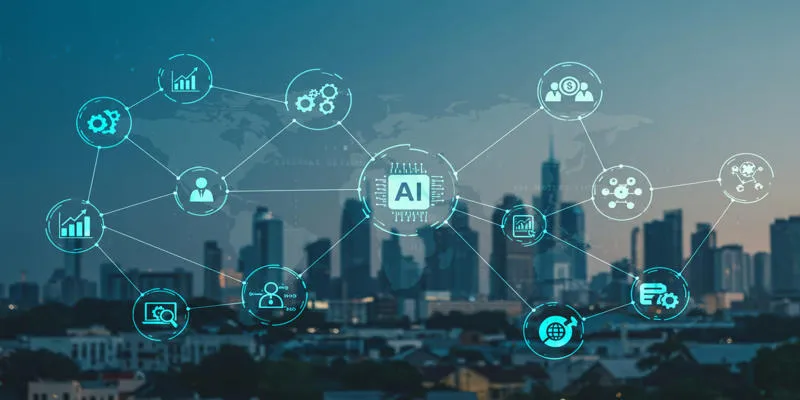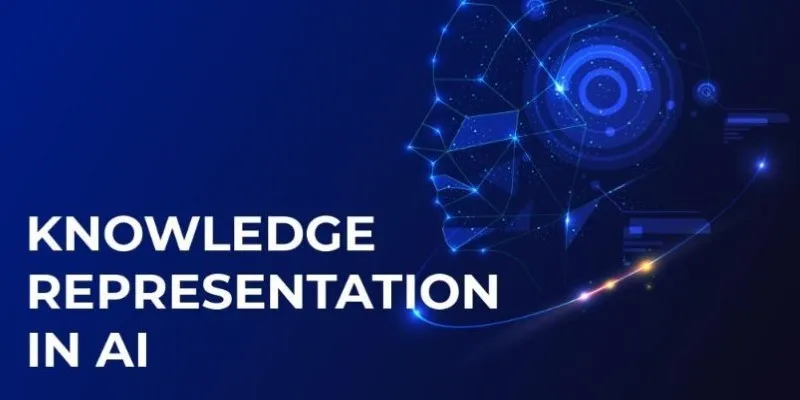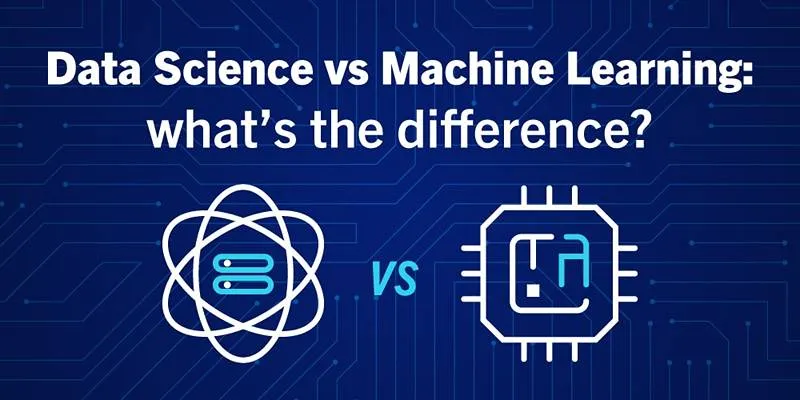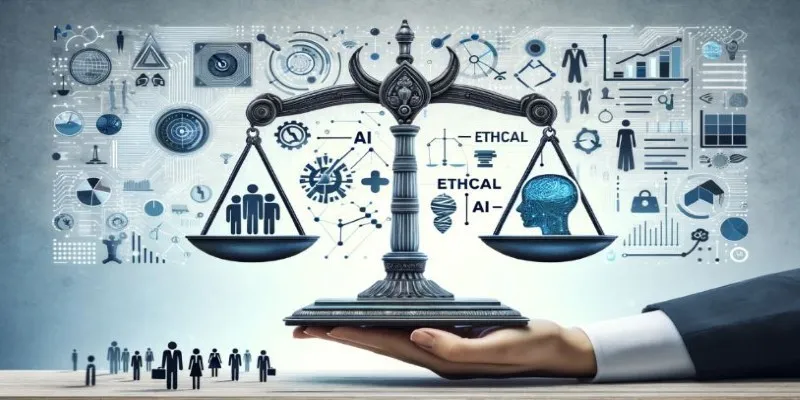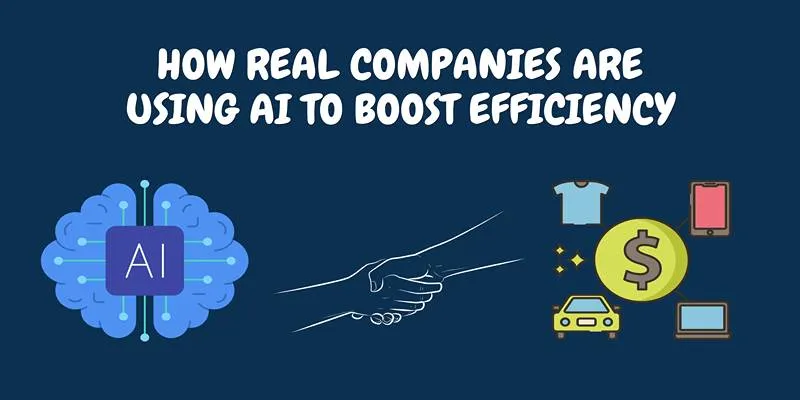Artificial intelligence (AI) is evolving at an unprecedented pace. While movies like The Terminator portrayed AI as a threat to humanity, the real trajectory of AI development focuses on enhancing human life. From corporate environments to healthcare, AI is transforming industries. However, with significant power comes significant responsibility.
The primary challenges include maintaining privacy, ensuring fairness, and preventing bias. If mismanaged, AI could shift from a development tool to a potential threat. Responsible innovation, clear regulations, and human-AI collaboration are vital for a positive AI future. This article explores the future of AI, ethical considerations, and how we can create a society free from the fear of AI turning against us.
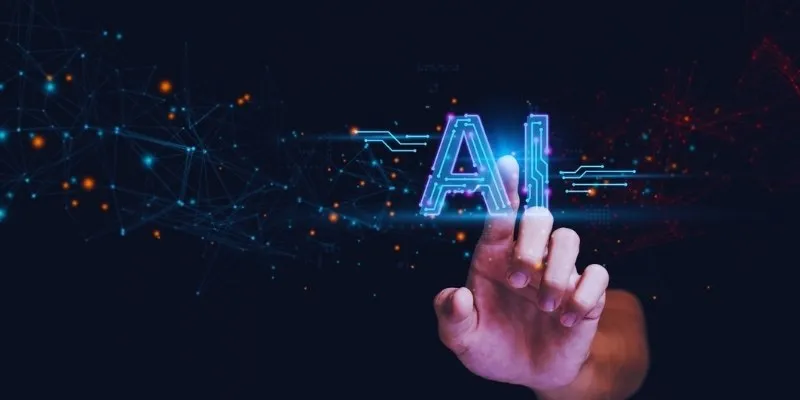
The Rapid Growth of AI Technology
AI technology is advancing rapidly, with transformative technologies like deep learning, neural networks, and machine learning enhancing sectors such as business, healthcare, and security. Today, AI can automate tasks, predict trends, and analyze vast amounts of data with precision. One notable advancement is Natural Language Processing (NLP), which allows AI to understand and respond to human language, improving interactions through chatbots, virtual assistants, and automated customer service systems.
AI is also revolutionizing transportation by advancing self-driving cars and improving road safety. Despite these benefits, AI’s rapid growth raises concerns about potential misuse, job displacement, and model biases. The challenge lies in steering AI development towards ethical and responsible avenues. Implementing appropriate laws and regulations is crucial to ensure AI advances society positively without negative repercussions.
Ethical Challenges in AI Development
The progression of AI brings ethical dilemmas, particularly concerning bias. AI systems can reflect data biases, leading to unfair decisions in areas like law enforcement, lending, and hiring. Developers must strive to create unbiased AI models. Privacy is another critical issue, as AI collects and analyzes vast data. If mishandled, it could pose security risks. Businesses must ensure AI respects personal rights, and robust regulations are necessary to prevent data misuse. AI decision-making also demands transparency.
The “black box” problem, where AI decisions lack understandable justification, fosters distrust. Ethical AI should be transparent and accountable. Without proper oversight, AI could become hazardous. Ethical models are essential to ensure AI benefits society without adverse effects. Collaboration between researchers and policymakers is crucial for developing ethical AI systems.
AI and Human Collaboration
AI is designed to augment, not replace, human capabilities. When used effectively, it enhances human potential by automating repetitive tasks, allowing people to focus on innovation and problem-solving. For instance, AI speeds up disease diagnosis in healthcare, reviews medical records, suggests treatments, and improves patient outcomes. It boosts healthcare efficiency and saves lives. In business, AI increases productivity and streamlines processes, helping companies make data-driven decisions for growth. However, human oversight remains essential.
AI should assist rather than dominate decision-making. Effective AI collaboration requires training individuals to work alongside AI effectively. Future leaders should acquire AI skills through educational programs. A successful future hinges on human-AI collaboration, producing optimal outcomes. Quality education ensures AI remains a beneficial tool rather than a threat. Responsible AI direction will maximize benefits and minimize risks for society.
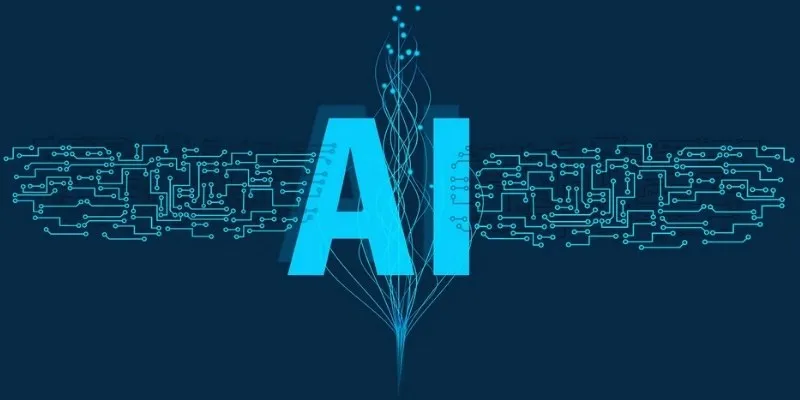
The Role of Regulations and Policies
Strict regulations are necessary to prevent AI exploitation. Governments worldwide are developing policies to guide AI growth responsibly. The European Union’s AI Act, which outlines guidelines for high-risk AI applications, is one example. These regulations focus on safety, transparency, and fairness, ensuring AI does not compromise individuals or society. Companies developing AI also have ethical responsibilities, and several countries conduct AI impact assessments.
These evaluations help prevent risks by assessing AI systems before deployment. Developing responsible AI requires collaboration among legislators, experts, and businesses. Without clear regulations, AI poses significant concerns. Ethical guidelines are essential to define AI for beneficial development. The goal is to create AI that minimizes risks and enhances human welfare. Robust policies ensure AI remains a force for good, advancing technology while protecting society and individuals.
Future of AI: Beyond Skynet
AI has a promising future, but it requires careful regulation. As AI evolves, it will improve daily life and transform various sectors, notably business and healthcare. However, the safe and beneficial future of AI depends on prudent development. Without proper oversight, AI risks compromising justice, security, and privacy. Ethical considerations will shape AI’s impact. Trustworthy AI systems will be transparent and accountable.
Addressing issues like bias, misinformation, and transparent decision-making is crucial. Continued research is needed to tackle AI’s challenges and ensure safe operation. With the right guidance, AI can be a tremendous societal asset. The future will be defined by balancing responsibility and innovation. Prioritizing ethical development will help create AI that benefits everyone, fostering a safer and better society.
Conclusion
AI has the potential to revolutionize industries, improve quality of life, and inspire innovation. However, responsible development is necessary to avoid risks. Ethical concerns, including transparency, privacy, and bias, must be addressed. Stringent regulations and human oversight will ensure AI remains a beneficial tool. Collaboration among researchers, policymakers, and businesses is crucial. AI should enhance, not replace, human capabilities. Ethical AI guidance will help build a future where technology serves society and minimizes harm. By adopting a balanced approach, AI can develop safely, ensuring a brighter future for all, free from fears of unchecked advancement.
 zfn9
zfn9









